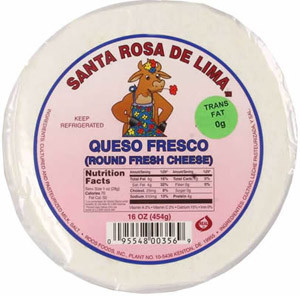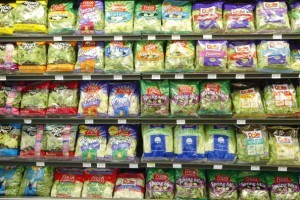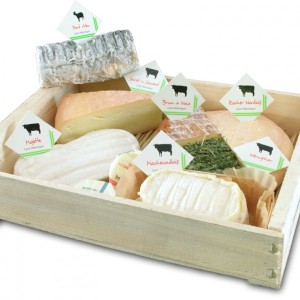It’s sort of a Hip morning here, letting the hockey adrenaline run through the system.
- Purpose
On January 25, 2016, FSIS will launch a year-long pilot project to assess whether retailers are using the recommendations in the FSIS Best Practices Guidance for Controlling Listeria monocytogenes (Lm) in Retail Delicatessens (FSIS Retail Lm Guideline).This notice provides instructions to the Office of Investigation, Enforcement and Audit (OIEA), Compliance and Investigations Division (CID) Investigators, on how to complete the Ready-To-Eat (RTE) Retail Deli Tool, a questionnaire in the Public Health Information System (PHIS) that will help Investigators compare the practices observed in retail delis to the FSIS Retail Lm Guideline in the following areas: product handling, cleaning and sanitizing, facility and equipment controls, and employee practices. This notice also provides instructions to Investigators on how to conduct outreach at retail firms that slice or prepare deli products during their in-commerce surveillance activities.
- Background
- The FSIS Retail Lm Guideline provides specific recommendations that retailers can use in the deli area of their operations to control Lm contamination of RTE meat and poultry products. The guidance highlights recommendations based on an evaluation of retail conditions and practices documented in the Interagency Risk Assessment–Listeria monocytogenes in Retail Delicatessens (Interagency Retail Lm Risk Assessment). The FSIS Retail Lm Guideline includes information from the Food and Drug Administration (FDA) Food Code, scientific literature, other guidance documents, and lessons learned from FSIS verification sampling and from reviewing sanitation programs for Lm controls in meat and poultry processing establishments. The FSIS Retail Lm Guideline sets out recommendations rather than requirements.
- As mentioned above, FSIS is launching a year-long, nationwide pilot project to measure the status of retailers’ voluntary adoption of the recommendations in the FSIS Retail Lm Guideline. FSIS will not perform sampling at retail. The Data Analysis Staff, Office of Data Integration and Food Protection, will analyze the results monthly, and the quarterly results will be posted on the FSIS Web site in a Constituent Update.
III. Outreach
- When conducting in-commerce surveillance at a retail firm that slices or prepares deli products, Investigators are to provide the firm’s management with the tri-fold brochure, Guidance for Controlling
Listeria monocytogenes (Lm) in Retail Delicatessens. The brochure is available in English and Spanish on FSIS’s Web site at http://www.fsis.usda.gov/wps/portal/fsis/topics/regulatory-compliance/listeria . Printed copies of the brochure can be obtained through supervisory channels. Investigators are to provide this information as part of the education and outreach they perform to provide regulatory food safety, food defense, and other compliance information to in-commerce businesses, owners and operators, employees, and others.
- In addition, Investigators are to provide the firm’s management with a copy of the letter that explains FSIS’s pilot project. The letter can be obtaion through supervisory channels.
- RTE Retail Deli Tool
When conducting in-commerce surveillance at a retail firm that slices or prepares deli products, Investigators are to complete the RTE Retail Deli Tool in PHIS.
Investigators are not to ask the firm’s manager or employees to answer the questions in the RTE Retail Deli Tool. Investigators are to make independent observations. Investigators may request records in addition to those required to be kept under 9 CFR 320.1 or 381.175 (e.g., records that show the firm is cleaning every four hours or rotating sanitizers) in order to identify industry practices and to determine whether the firm is following the FSIS Retail Lm Guidelines. Investigators may also make inquires to clarify their findings.
After completing the RTE Deli Tool in PHIS, Investigators are to discuss any vulnerability that they observed with the firm’s manager or employees.
- Questions
Refer questions regarding this notice through askFSIS. When submitting a question, use the Submit a Question tab, and enter the following information in the fields provided:
Subject Field: Enter Notice 04-16
Question Field: Enter your question with as much detail as possible.
Product Field: Select General Inspection Policy from the drop-down menu.
Category Field: Select Sampling: Listeria from the drop-down menu.
Policy Arena: Select Domestic (U.S.) Only from the drop-down menu.
When all fields are complete, press Continue and at the next screen press Finish Submitting Question.
Daniel Engeljohn
Assistant Administrator
Office of Policy and Program Development
Pilot project: control of Listeria monocytogenes (Lm) in retail delicatessens
20.jan.16
USDA FSIS
http://www.fsis.usda.gov/wps/wcm/connect/f519e2b4-1aff-4b80-beff-dba497a7338f/04-16.pdf?MOD=AJPERES












